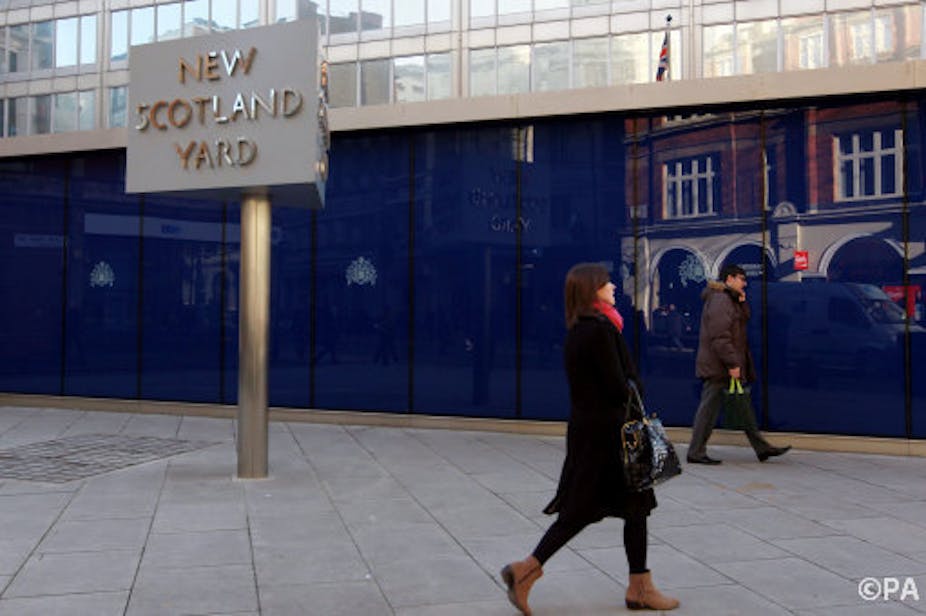With the Metropolitan Police agreeing to reveal whether undercover officers had relationships with women while using assumed identities, and a new Operation Herne report exposing more controversial police infiltration of British political and activist groups between 1968 and 2008, the work of the Special Demonstration Squad (SDS) is stirring up outrage once again.
Public revelations that a number of former SDS officers engaged in serious misconduct and ethically dubious behaviour, used dead children’s identities, allegedly smeared Stephen Lawrence’s family and recorded information on justice campaigns, along with a public inquiry, have plunged the Metropolitan Police into a new nightmare hot on the heels of the Stephen Lawrence Inquiry.
Despite the outrage that has met these disclosures, there has been relatively little discussion of the political and moral contours of undercover policing as a pre-emptive intelligence gathering tool – which the police maintain is vital for preventing serious public disorder and political violence.
While the ethically questionable tactics employed by the unit certainly need to be questioned, the media exposé of the SDS and the ensuing public outrage at it have overshadowed the real problem. We have yet to figure out what role, if any, undercover policing should play in a liberal democracy – and what rules it can realistically be expected to follow.
Learning from history, policing the future
While some of its means clearly fell outside acceptable moral and ethical boundaries, the SDS’s aims may have had politically understandable reasons.
The unit was formed in the delicate sociopolitical context of the late 1960s, when the state was facing an increasing threat of public disorder and political violence.
Any romantic idea that people are born-good noble savages corrupted by society (including the state and the police) were thoroughly smashed by the riots that marked the Montreal Police strike in 1969. By the start of the 1970s, few could argue that public self-policing would ever offer a functioning system of law and order.
Nevertheless, hopes rest on increased community self-policing and more participatory ways to counter extremism and prevent political violence. As for those clandestine, political groups that pose a serious security threat and cannot be reached through means other than infiltration, a set of strict yet realistic regulations, codes of conduct and close supervision should be enforced and constantly revised.
A different game – but with rules
If one accepts (and one might well not) that undercover policing falls within the police mandate and is a legitimate means to prevent public disorder, then it follows that standard rules of policing may not always apply. In particular, the Peelian principle of “policing by consent” is hard to uphold when the whole operational point of undercover policing is to divert uncooperative groups and people from engaging in criminal behaviour. By definition, these “targets” cannot be won over through consent.
Instead, the police find themselves on a scale of evils. If the threat of public disorder and violence is a greater evil than the “necessary evils” the police must resort to when gathering pre-emptive intelligence, then the latter must take ethical and political priority – however uncomfortable this is.
This puts undercover policing units in a moral and legal limbo; by definition, they act as quasi extra-legem organisations that do not play the game by the book. But at the same time, a “book” is obviously needed to clearly formalise the rules and the limitations of undercover policing conduct and operations.
Failures and successes
The Regulation of Investigatory Powers Act 2000 (RIPA), took a step towards this. RIPA was a badly needed piece of legislation that, if introduced earlier, could have increased the SDS’ accountability and ensured a more ethical code of conduct. Strict adherence to the Management of Police Information (MOPI) could have also prevented the institutional failure highlighted by the latest Operation Herne report - which shifted some of the blame from undercover officers to Special Branch management.
It is no mystery that some of the groups infiltrated by the SDS were not necessarily involved in violence. These groups, such as Direct Action Movement and Youth Against Racism in Europe and several others, may have not even offered tacit or explicit support to violent groups. The fact that some of them provided a platform and credibility to other target groups may have factored into the SDS’s strategies. While operationally understandable, this approach clearly falls within very blurred ethical boundaries.
At the same time, the unit managed to render ineffective several groups explicitly posing a security threat to the public – Combat 18, the Animal Liberation Front, the BNP and others.
While individual officers’ serious misconduct has rightly incurred public outrage, the unit also deserves praise for its successes – which were often achieved through psychologically taxing and operationally risky activities.
Lesser evil
In a political culture that rewards overreaction above underreaction and in an emotionally charged public arena, it is hard to reconcile civil libertarianism with the basic interests of the majority (national security) without rationally engaging with the concept of evil and harm.
Few would disagree that deaths and injuries represent a different scale of evil compared to subterfuge, deception and manipulation. Nevertheless, no matter how “great” the evil one is fighting, any police response should of course be channelled through the “least” amount of evil that is strictly necessary.
A “lesser evil” approach will only work hand in hand with strong accountability, proportional and last-resort policing measures, and serious attempts to limit police action’s collateral damage. The harm that undercover policing does (and harm it does) can only make ethical sense if collateral damage is kept to a minimum, if officers work strictly within tight regulation, and if covert work is used as a clearly necessary last resort to prevent serious public disorder and violence.
There may be no prospect of our living completely without covert police action in the future – but if the outrage at the SDS’s history leads to an effort to shore up these values, it will have been worth something.

